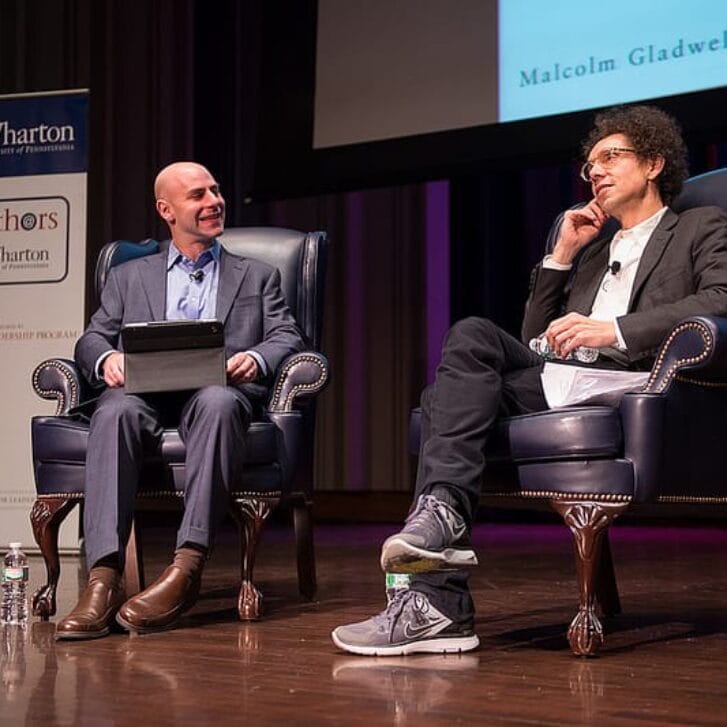Howard Marlowe, W’64, essentially offered a Lobbying 101 course to Wharton undergraduate students. He opened with the question, “What do you think of when you think of lobbyists?”
Hands flew up.
“Fat cats,” one student replied.
Marlowe, founder and president of Marlowe & Company, a government affairs consulting firm that represents local governments, ports and airports as well as small businesses, then proceeded to focus on how lobbyists actually operate. In general, his work involves heavy research, marketing and persuasive skills—and a lot of advocacy.
He does have concerns about how money can influence some congressmen, but that is not how he does business.
“I would not be in business for 30 years if I did not have substance and integrity,” he assured.

Howard Marlowe, W’64
After describing the ins-and-outs of lobbying, Marlowe presented an interactive simulation for the students to get a better grasp on how lobbyists handle clients. Marlow gave them an actual, ongoing public policy issue: how to stop costly coastal erosion from ruining the national economy. Though only a portion of the U.S. population lives on the coast, the economies of coastal cities and towns represent a large portion of the gross domestic product. The students’ solutions had to tackle technical questions related to preventing or stopping beach erosion, as well as monetary ones such as funding the prevention and restoration efforts.
Students broke up into three groups and brainstormed for five minutes. Afterward, student leaders presented to the rest of the classroom their respective solutions for the preservation of coastal economies through beach maintenance.
Marlowe discussed the advantages, the drawbacks and the feasibility of each group’s ideas, then addressed the biggest hurdle—politics. Each solution was well articulated and thoughtful. Marlowe was impressed. For example, one group imagined an amusement park on popular boardwalks and beachfront space. The start-up costs would be covered by the federal government and the municipality would take care of running the park. All the profits would go toward preserving the beach from erosion. Yet while Marlowe agreed that many of the ideas were promising, he noted that advocacy and marketing must also go into convincing congressmen to take up the cause.
“I had a senator that I waited three hours to see. When he finally arrived at his office he said, ‘Howard, you have five minutes.’ And I made the pitch in five minutes,” Marlowe recounted.
Many students seemed impressed and intrigued by the lobbying process. The lecture and simulation gave them Lobbying 101—and by the end perhaps even helped to produce one or two more future lobbyists.
Editor’s note: Marlowe’s lecture in Huntsman Hall was part of the Wharton Undergraduate Alumni Colloquia on September 20, sponsored by the student-led Wharton Alumni Relations Council and Wharton Alumni Relations.


























